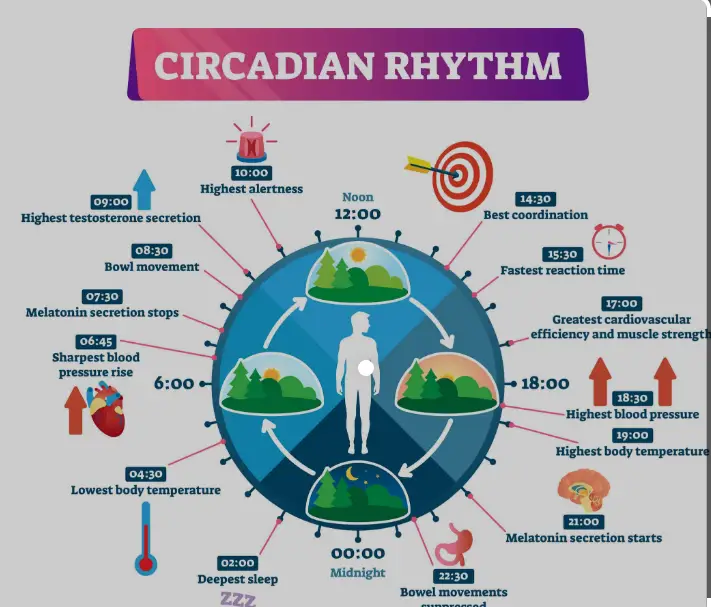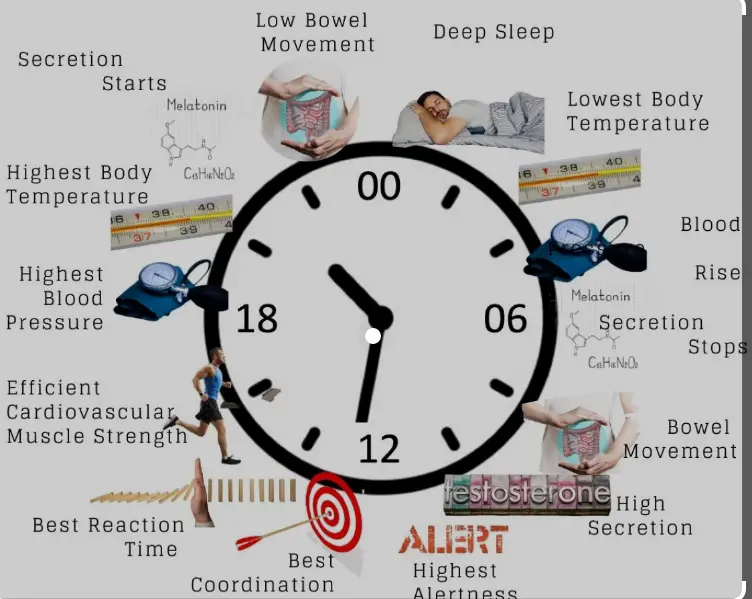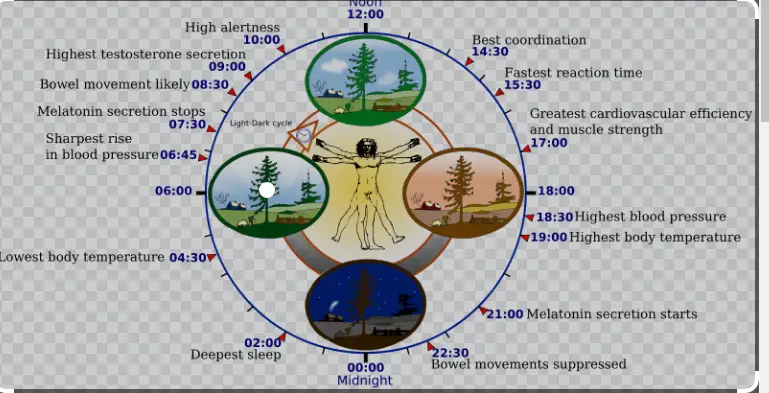The concepts of biological clocks and circadian rhythms are foundational in understanding how living organisms, including humans, function and adapt to their environments. These mechanisms govern a vast array of physiological processes, from sleep patterns to metabolism and mental health. While often used interchangeably, these terms encapsulate distinct aspects of biological timing.
Biological clocks are internal mechanisms present in all living organisms that regulate timing for various biological functions. Circadian rhythms, specifically, are cycles of about 24 hours that are part of the broader biological clock system controlling daily physiological and behavioral cycles. Understanding the difference between these two can significantly impact how we manage our health and daily activities.
Focusing on these rhythms and clocks reveals their profound impact on human health. Disruptions to these systems can lead to serious health issues, highlighting the importance of maintaining regular patterns and understanding their influences on our bodies.

Biological Clock Basics
Definition and Function
The biological clock is an internal mechanism that regulates the timing of biological processes and behaviors in living organisms. This clock helps to control everything from sleep cycles to feeding patterns, hormone release, and other vital bodily functions. Essentially, these clocks ensure that various physiological processes occur at the most optimal time, depending on the external environmental conditions and the organism’s own needs.
Role in Physiology
Biological clocks play a pivotal role in the physiological health of an organism. They synchronize internal processes with external cues like light and temperature, helping to optimize an organism’s ability to function. For instance, in humans, the biological clock regulates the release of melatonin, a hormone that promotes sleep, aligning our sleep patterns with nightfall. This synchronization supports metabolic health, mental health, immune response, and overall well-being.
Circadian Rhythm Explained
Definition and Significance
Circadian rhythm refers to physical, mental, and behavioral changes that follow a roughly 24-hour cycle, responding primarily to light and darkness in an organism’s environment. Most living organisms, including humans, plants, and microorganisms, possess this intrinsic time-keeping capability, which is critical for survival. This rhythm is significant because it dictates the timing of essential functions such as sleeping and waking, eating, and hormone regulation.
How It Regulates Behavior
Circadian rhythms influence a wide range of behaviors by regulating the timing of when certain processes occur in the body. For example:
- Sleep-Wake Cycle: It determines when we are alert and when we are sleepy, promoting rest at night and wakefulness during the day.
- Eating Habits: It controls the times at which we feel hungry, influencing meal timing and digestion.
- Hormonal Activity: It regulates the release of hormones like cortisol and insulin, which are crucial for energy use and storage.
Core Differences
Biological vs. Circadian
While both terms are related to internal timing mechanisms, there is a distinct difference between a biological clock and circadian rhythm. A biological clock includes all rhythmic phenomena within an organism, such as circadian rhythms, ultradian rhythms (which cycle more than once a day), and infradian rhythms (which cycle less than once a day). In contrast, a circadian rhythm specifically refers to those rhythms with a cycle of about 24 hours.
Impact on Health
The impact of these systems on health cannot be overstated. Misalignment of circadian rhythms, often seen in shift workers or due to jet lag, can lead to sleep disorders, obesity, diabetes, depression, and other chronic health issues. On the other hand, a well-regulated biological clock can enhance overall health, improve sleep quality, boost mental health, and maintain metabolic balance.
Biological Clock Types
Various Internal Clocks
Biological clocks are not a one-size-fits-all mechanism. They vary widely among different organisms and within an organism itself. Some common types include:
- Circadian Clocks: Control daily cycles.
- Ultradian Clocks: Manage cycles shorter than a day, such as hunger and hormone release.
- Infradian Clocks: Govern cycles longer than a day, such as menstrual cycles in humans.
Examples and Functions
Each type of biological clock has specific functions tailored to the needs of the organism. For example:
- Human Circadian Clock: Regulates the sleep-wake cycle and has profound effects on mental and physical health.
- Plant Circadian Clocks: Control leaf movements and photosynthesis rates, optimizing energy use.
- Animal Migration Clocks: Guide seasonal migration patterns, ensuring survival and reproductive success.

Circadian Rhythm Mechanisms
Underlying Biological Processes
Circadian rhythms are driven by a complex set of genetic interactions that occur within the cells of nearly all living organisms. These interactions involve a series of transcription-translation feedback loops where specific genes activate proteins that later turn these genes off. This cycle establishes a rhythm that is fundamentally genetic in nature but influenced by external signals, primarily light.
Genetic and Environmental Influences
The robustness and timing of circadian rhythms are not only the result of genetic coding but also heavily influenced by environmental factors. The primary environmental cue, known as a zeitgeber (time-giver), is light. However, other factors, such as temperature and social interactions, also play significant roles. These external cues adjust the phase of the circadian rhythms, helping the organism stay aligned with the 24-hour day/night cycle.
Health Implications
Sleep Patterns and Disorders
Disruptions in circadian rhythms can lead to various sleep disorders, such as insomnia or sleep phase disorder. When the internal clock is not in sync with the external environment, it can cause individuals to feel awake at night and sleepy during the day. Consistent alignment issues can lead to chronic sleep deprivation, which is linked to various health problems, including cardiovascular disease, obesity, and impaired cognitive function.
Metabolism and Eating Habits
The circadian system also regulates metabolism. It influences the timing of eating, the absorption of nutrients, and the metabolism of fat, proteins, and carbohydrates. Misalignment between eating patterns and circadian rhythms, as seen in night-shift workers, can disrupt metabolism and increase the risk of metabolic disorders like diabetes and obesity.
Age and Timing
Changes Over Lifespan
Circadian rhythms change as people age. Young children often wake up early and become sleepy in the early evening, whereas teenagers tend to stay up late and struggle with waking early. As adults age, they again tend to favor earlier bedtimes and wake times. These shifts can impact daily functioning and the overall quality of life.
Effects on Aging
Research suggests that maintaining a healthy circadian rhythm is also linked to healthier aging. Disrupted rhythms have been associated with accelerated cognitive decline, increased sleep disturbances, and greater susceptibility to diseases such as Alzheimer’s. Effective circadian regulation can thus promote longevity and reduce age-related disorders.
Managing Rhythms
Lifestyle Adjustments
Maintaining or restoring a healthy circadian rhythm can often be achieved through lifestyle adjustments. Some effective strategies include:
- Consistent Sleep Schedule: Going to bed and waking up at the same time every day.
- Light Exposure: Seeking natural light during the day and limiting light exposure, especially blue light, before bedtime.
- Meal Timing: Eating meals at regular times each day, which helps synchronize the body’s internal clock.
Medical Interventions
When lifestyle adjustments are insufficient, medical interventions may be necessary. These can include:
- Melatonin Supplements: Used to adjust the sleep-wake cycle, particularly for individuals dealing with jet lag or shift work.
- Light Therapy: Exposure to a light box can help shift the timing of the circadian clock, particularly in cases of seasonal affective disorder (SAD) or other forms of depression linked to circadian misalignment.
FAQs
What is a Biological Clock?
A biological clock is an internal system that manages timing for various biological functions across different intervals, from daily cycles to seasonal changes. This clock helps organisms anticipate and adapt to the regular rhythms of their environment.
How Does Circadian Rhythm Affect Sleep?
Circadian rhythm directly influences our sleep-wake cycle. It regulates the timing of when we feel alert and when we feel sleepy by responding to environmental cues like light, thus guiding our sleep patterns.
Can Circadian Rhythm Be Altered?
Yes, circadian rhythms can be altered by various factors, including changes in light exposure, shift work, travel across time zones, and lifestyle habits. Such changes can disrupt normal sleep patterns and overall health.
What Happens When Biological Clocks Are Disrupted?
Disruptions in biological clocks can lead to a range of health problems, such as sleep disorders, depression, obesity, diabetes, and heart disease. Maintaining a consistent daily schedule can help keep these clocks on track.
Conclusion
Exploring the intricacies of biological clocks and circadian rhythms sheds light on their crucial roles in our health and well-being. By differentiating between these two concepts, we can better understand how to optimize our daily lives and enhance our health management strategies.
Recognizing and respecting these natural timekeepers not only enhances our ability to function optimally during the day but also improves our overall health outcomes. As research continues to evolve, it will undoubtedly provide deeper insights into how we can further harness the power of our internal clocks.

